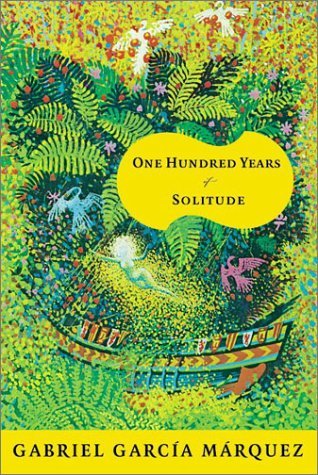
I wish many things, but as I came to the end of One Hundred Years of Solitude I wished that my Spanish was better than currently. There are certain things missed in translations, as most people will admit, that cannot fully be brought over from one language to the another and mean the same thing. Everything inside of me now desires to read Marquez in the original Spanish.
Marquez writes a story about a family that comes upon a certain place and founds a city, Macando. Written in mythic language, the reader finds themselves wrapped up in a world where women live beyond the lifespan of generations of children; where gypsies visit the town and share the secrets of foreign lands; and where the lines of sexuality between brothers and sisters are blurred. This is the land of Macando, this is the family of Buendia.
Without going into much detail on my part, Marquez writes of the Buendia family as any other family and this is what makes them special. It is not they are particularly good at doing something, or that they have become rich by doing something else and therefore need a TV show. What makes them interesting is the fact that they exist in this time in this place. They are because they are.
It is by their names that the Buendia family exists into eternity because it is by their name that they continue to live on the past in the present repeating the events and the characteristics of their patrilineage even without wanting to. Time, then, is nothing more than an idea that shapes the world around us; we do not control it. It could have been said that we shape the world, but in this story we see that we fall into the same footsteps as our parents and their parents before them into timelessness where our great-great-great grandmother grows old with us, goes blind but still sees; where plants and wildlife constantly takeover homes only to be pushed back, only to grow back again; a cycle of timelessness. There is nothing strange about this, though, and we live in this reality that truly nothing is changed while yet everything changes on a daily basis. The paradox of time is what Marquez tries to get at with this timelessness in One Hundred Years.
In some sense it can also be hopelessness, as one pleads for not one other child to be named after their father there is no escaping time. The same mistakes will be made and the same characteristics will be passed on until the end of time and until a whirlwind comes to begin to process anew in the same place with the same people.
No comments:
Post a Comment